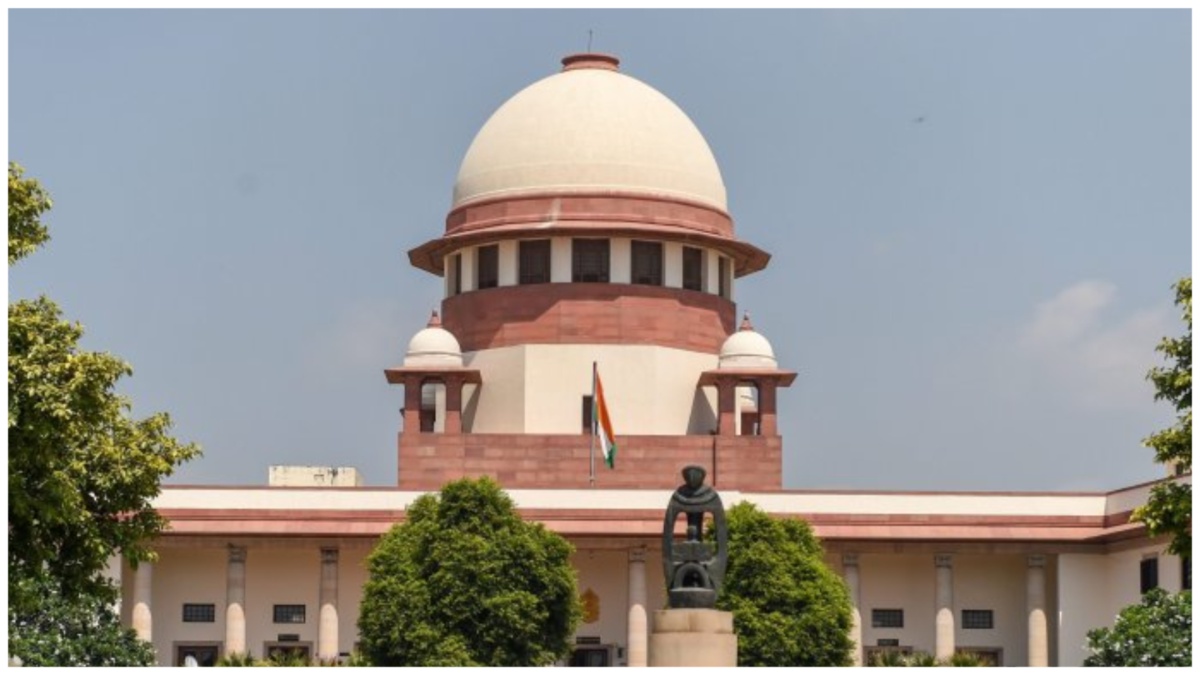Supreme Court said a big thing in the hearing
Probing the question of whether states can sub-categorize Scheduled Castes (SC) and Scheduled Tribes (ST) to provide quota within the quota, the Supreme Court on Thursday said state governments have the right to extend reservation benefits to backward classes. We cannot adopt a selective stance as this would lead to a dangerous trend of appeasement. The top court is hearing the case in the context of revisiting the 2004 five-judge Constitution bench judgment in EV Chinnaiah versus State of Andhra Pradesh, which had held that SCs and STs are homogenous groups. According to the judgment, therefore, the State cannot proceed with the classification within SC and ST to provide quota within the quota to the more deprived and vulnerable castes within these groups.
Supreme hearing in quota case within quota
A seven-judge Constitution bench headed by Chief Justice DY Chandrachud said that while providing the benefits of reservation to the most backward classes, the state cannot exclude others. The bench said, “If there are so many backward castes, can the state, for example, choose only two? Those who are excluded can always challenge their classification under Article 14 on the ground that we fulfill all the criteria of backwardness. But the state can also refute by saying that we can classify a caste by looking at the extent of backwardness. It can be said that we want to give reservation to the most backward.” It said, “But while giving benefits to the most backward, you cannot exclude others. This will become a dangerous trend of appeasement. Some state governments will select some castes while others will select others. There is no idea of doing popular politics in this. We have to prepare it by setting parameters.
Supreme Court said this
The bench comprises Justice B R Gavai, Justice Vikram Nath, Justice Bela M Trivedi, Justice Pankaj Mithal, Justice Manoj Mishra and Justice Satish Chandra Mishra. The apex court reserved its decision after hearing the arguments of the Centre, states and others. The bench said that it is the role of the state to provide reservation and remove social backwardness and while doing so, it can do so if it wants to remove the inequalities faced by someone. The bench said that sub-categorization would help others of that caste to come forward, otherwise only one class would continue to benefit. Senior advocate Manoj Swaroop, appearing for one of the parties in the court, mentioned the diversity within castes. The court had on Wednesday said that all Scheduled Castes (SC) and Scheduled Tribes (ST) cannot be homogeneous in terms of their social, economic, educational and social status. The bench had said, “The social status and other indicators may be different for different castes within the Scheduled Castes. Therefore, the status of social and economic backwardness may vary from one person or caste to another.
Hearing going on on 23 petitions
On Tuesday, the apex court said it would examine the validity of its 2004 judgment which had held that states did not have the power to further sub-categorize SCs and STs for granting quotas. It made it clear that it would not get into arguments related to quantitative data which had led the Punjab government to provide 50 per cent quota within the quota. The bench is hearing 23 petitions, including a major petition filed by the Punjab government challenging a 2010 judgment of the Punjab and Haryana High Court. The High Court had struck down Section 4(5) of the Punjab Act as unconstitutional, which provided 50 per cent Scheduled Caste reservation to ‘Valmikis’ and ‘Mazahabi Sikhs’.
The court had said that this provision violates the 2004 judgment of a five-judge Constitution bench of the Supreme Court in the case of E V Chinnaiah versus State of Andhra Pradesh. The Chinnaiah judgment held that any sub-categorization of the SC would be a violation of Article 14 (right to equality) of the Constitution. The Court’s 2004 judgment held that only Parliament, and not state legislatures, can exclude castes considered to be SCs from the President’s list under Article 341 of the Constitution. The questions the top court is examining are whether sub-categorization within the Scheduled Caste and Scheduled Tribe categories should be allowed as in the case of Other Backward Classes (OBCs) and whether state legislatures should empower states to undertake this exercise. Those who are capable of introducing laws.
(input language)
Latest India News
